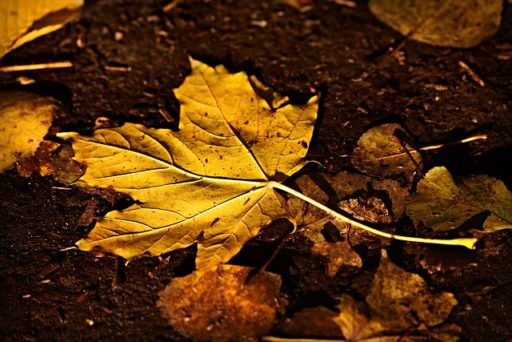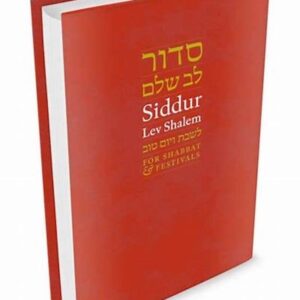Precious time, a period of transition: preparing syllabi for my last two classes as a full-time, tenured member of the faculty, turning my attention to the experience of approaching a full-stop.
An end to earning, as they say, a living.
What about earning a dying? Can one say this?
I’m living. I’m dying. I’m coming to an end. As I do, my wish is this: I’d like to stay awake, I’d like to pay attention as I live through the days between now and my last day at the university, between now and my last day, my last hour, my last human breath.
“Attention is the natural prayer of the soul,” writes French philosopher Nicolas Malebranche (1638 – 1715). I first stumbled upon this statement in Edward Hirsch’s How to Read a Poem and Fall in Love with Poetry. I haven’t read Malebranche. I know only the little bit about him I’ve gleaned from a quick Google search. So I can’t say what the statement means to him. Am I a lazy scholar? Very well then. I’m a lazy scholar. Not a scholar at all, really. Does that mean that I haven’t earned my living, haven’t earned my dying?
Living: remembering. Dying: forgetting. When I think of all I’ve read, all I’ve forgotten of what I’ve read, I think I’ve been doing at least as much dying as living. Still, Malebranche’s statement stuck with me.
Attention, natural, prayer, soul.
Soul. I can’t say, from my lived experience, that I can point to a part of my being and say, “that’s it, that’s my soul.” In the Bible, writes Arthur Green in These Are the Words: A Vocabulary of Jewish Spiritual Life, “soul” is not distinguished from body. Neshamah, “the usual word for ‘soul’ in Jewish speech,” means “breath.” It’s the noun form of the word used in Genesis 2:7 in which God blows the breath of life (nishmat hayim) into Adam’s nostrils.
Later, the rabbis, influenced in part by Hellenism, developed a notion of soul separate from body, a “gift from ‘above,’…sent by God to dwell in the body.” Two other words in early sources are sometimes used for soul: nefesh, self, and ruach, spirit. Eventually, these three souls come to represent stages of spiritual development: nefesh seen as the lowest, ruach above it, and neshama above the other two. The Kabbalists see “soul” as “an actual ‘part of God above’; that which God blows into Adam is the presence of God’s own self.”
I take comfort in knowing that our understanding of soul changes through time. I remain curious about my own experience. Have I experienced anything that I could confidently identify as the “soul”?
Prayer. I don’t pray regularly. When I do pray, often the words in the prayerbook are just ink on a page, fuzzy, distant, silent. But sometimes, a word or two comes into focus, a phrase that I have said to myself or aloud a thousand times before it leaves the page, enters and opens me.
Abraham Joshua Heschel writes, “[s]ometimes prayer…is a light within us. Those who have been resplendent with this light find little meaning in speculations about the efficacy of prayer.”
I don’t know what you’d see or if you’d see anything different at all if you were to look into my eyes when I feel illuminated within. But when I’m called by a word or phrase in prayer, called not by words on a page but by words sounding within, I come to attention. With a sense of wonder, I attend to the world, without and within, made knowable by a few words of prayer.
“To pray,” writes Heschel, “is to take notice of the wonder, to regain a sense of the mystery that animates all beings, the divine margin in all attainments. Prayer is our humble answer to the inconceivable surprise of living.”
What about the inconceivable surprise of dying?
Though the hour and circumstances of my death remain unknown to me, I am dying. Just as I have been living all along up to now, I have been dying. Usually, however, I don’t pay attention to dying as part of living. Only now, with retirement in sight—180 days from now as I write this—, dying feels more present. Can I attend to dying with the same sense of wonder with which I sometimes attend to living? Perhaps I won’t be blessed to die of natural causes. But I’ve been dying all along. That’s natural.
Natural. What’s natural? Aging, if one is fortunate enough. Laughing, weeping, fearing, longing. Welcoming, refusing. Seeing, hearing, touching, smelling, tasting. Resting, creating. Bending, rising. Knowing. Being.
This morning, after my body woke up, I picked up where I had left off in Frank Ostaseski’s The Five Invitations: Discovering What Death Can Teach Us About Living Fully. My attention hadn’t yet woken up when I turned the page to an anecdote about a game Ostaseski led with a group of three- to five-year-olds in a small preschool he and a partner had started. They took the kids to the woods and asked them to find “dead things.” They “happily collect[ed] fallen leaves, broken branches, a rusty old car part, and occasionally the bones of a crow or small animal,” he writes.
Then, with curiosity rather than fear, they explored “the ‘dead things’ in a close-up and personal way,” “sometimes…craft[ing] amazing stories about the history of an object.” One child said, “‘I think the leaves that fall from trees are very kind. They make room for little new ones to grow. It would be sad if trees couldn’t grow new leaves.’”
The story did the trick: it awakened my attention! Once awake, my attention held both my state of wonder and my fear of “dead things.” I’m especially afraid of myself becoming a “dead thing.”
Attention: bigger than fear, bigger than wonder. A faculty capacious enough to hold all of life, the entire experience of living-dying. Is attention the natural prayer of the soul, or is attention the soul itself?
Now I’m a member of the faculty. Now I’m not. Either way, I’m paying attention. It’s how I die. It’s how I live. It’s how I pray.
Richard Chess directed the Center for Jewish Studies at UNC Asheville for 30 years. He helps lead UNC Asheville’s contemplative inquiry initiative. He is a board member for the Center for Contemplative Mind in Society. He’s published four books of poetry, the most recent of which is Love Nailed to the Doorpost. You can find him at http://www.richardchess.com





